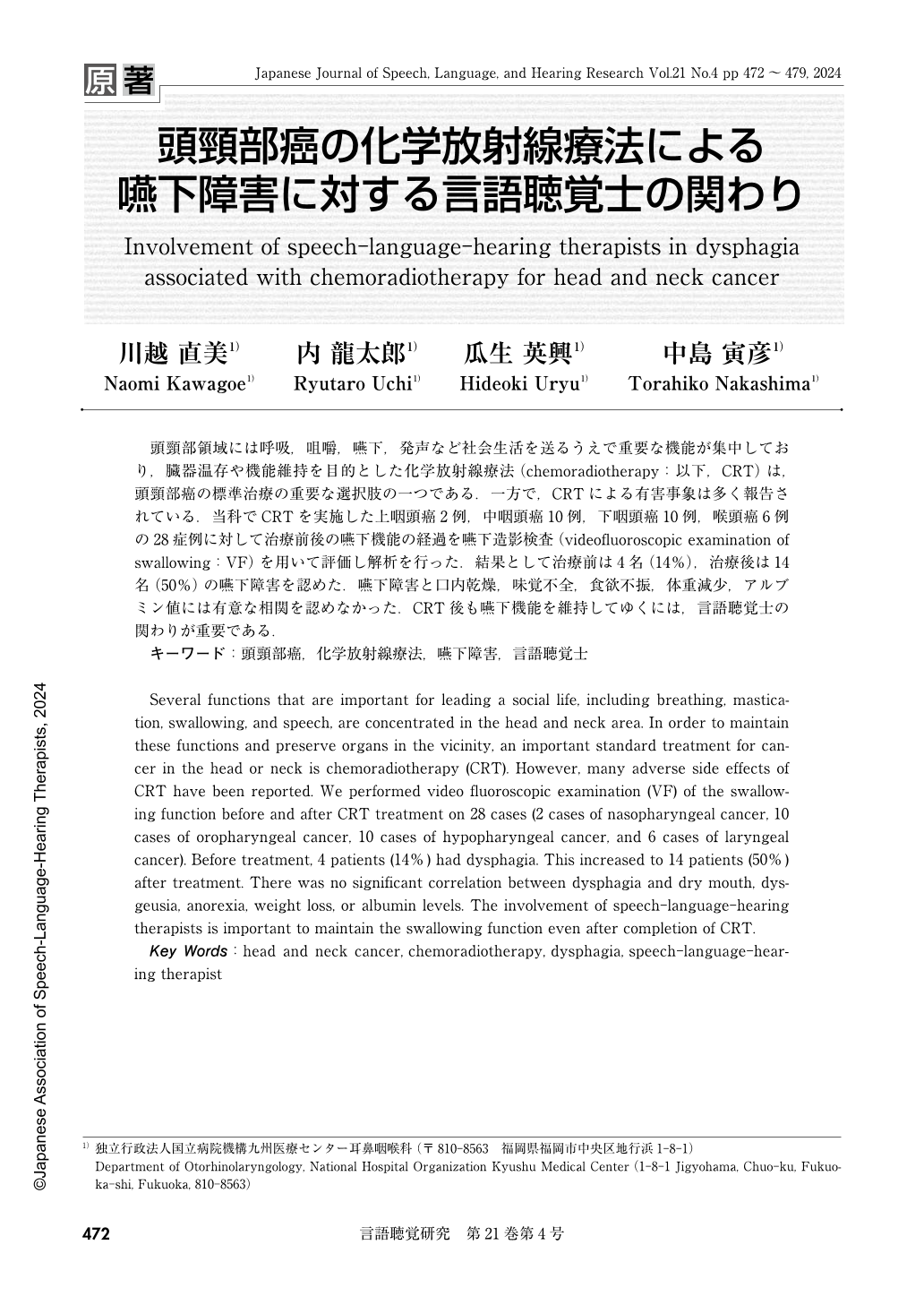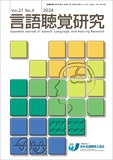Japanese
English
- 有料閲覧
- Abstract 文献概要
- 1ページ目 Look Inside
- 参考文献 Reference
頭頸部領域には呼吸,咀嚼,嚥下,発声など社会生活を送るうえで重要な機能が集中しており,臓器温存や機能維持を目的とした化学放射線療法(chemoradiotherapy:以下,CRT)は,頭頸部癌の標準治療の重要な選択肢の一つである.一方で,CRTによる有害事象は多く報告されている.当科でCRTを実施した上咽頭癌2例,中咽頭癌10例,下咽頭癌10例,喉頭癌6例の28症例に対して治療前後の嚥下機能の経過を嚥下造影検査(videofluoroscopic examination of swallowing:VF)を用いて評価し解析を行った.結果として治療前は4名(14%),治療後は14名(50%)の嚥下障害を認めた.嚥下障害と口内乾燥,味覚不全,食欲不振,体重減少,アルブミン値には有意な相関を認めなかった.CRT後も嚥下機能を維持してゆくには,言語聴覚士の関わりが重要である.
Several functions that are important for leading a social life, including breathing, mastication, swallowing, and speech, are concentrated in the head and neck area. In order to maintain these functions and preserve organs in the vicinity, an important standard treatment for cancer in the head or neck is chemoradiotherapy (CRT). However, many adverse side effects of CRT have been reported. We performed video fluoroscopic examination (VF) of the swallowing function before and after CRT treatment on 28 cases (2 cases of nasopharyngeal cancer, 10 cases of oropharyngeal cancer, 10 cases of hypopharyngeal cancer, and 6 cases of laryngeal cancer). Before treatment, 4 patients (14%) had dysphagia. This increased to 14 patients (50%) after treatment. There was no significant correlation between dysphagia and dry mouth, dysgeusia, anorexia, weight loss, or albumin levels. The involvement of speech-language-hearing therapists is important to maintain the swallowing function even after completion of CRT.

Copyright © 2024, Japanese Association of Speech-Language-Hearing Therapists. All rights reserved.


